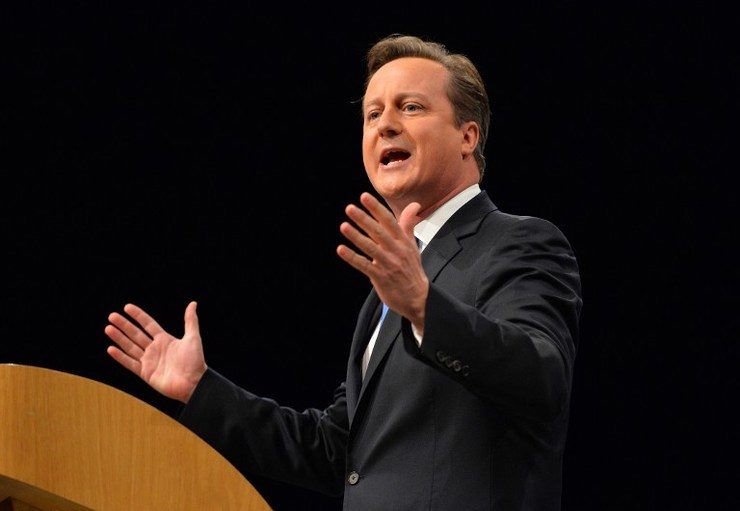SUMMARY
This is AI generated summarization, which may have errors. For context, always refer to the full article.

BRUSSELS, Belgium – European leaders meet in Brussels on Friday, June 27, facing a damaging row over Jean-Claude Juncker’s likely nomination as European Commission president which has left Britain isolated and angry.
Although Juncker’s appointment is expected to be confirmed at the summit, Prime Minister David Cameron will force an unprecedented vote on the issue, playing out in public major disagreements about the EU’s future.
While leaders could try and appease Cameron by offering London a top job in Brussels, the dispute threatens to fuel eurosceptic sentiment in Britain before a referendum on leaving the EU slated for 2017.
Leaders are clearly expecting to be able to announce a decision on Friday.
A draft of the summit conclusions obtained by Agence France Presse (AFP) and dated June 25 contains the paragraph: “The European Council adopted the decision proposing to the European Parliament X for the President of the European Commission.”
But Cameron could “retaliate” against Juncker’s nomination by refusing to sign the conclusions, according to the EU Observer website.
The disagreement comes a month after anti-EU parties made sweeping gains in European elections, with outright victories for the UK Independence Party in Britain and the National Front in France.
German Chancellor Angela Merkel, Europe’s most powerful leader, on Thursday urged EU colleagues to “compromise” with Britain to defuse tensions.
“I think we can find compromises here and make a step towards Great Britain,” she said.
“I repeatedly spoke of a European spirit which is needed and which will help us to find good solutions.”
Her comments came shortly before EU leaders gathered in the Belgian town of Ypres, among World War I’s bloodiest battlefields, to mark 100 years since the conflict started.
On February 27, Merkel urged Britain to stay in the EU, saying that Britain and Germany shared the goal of a “strong and competitive” EU that was a “model for other regions of the world.”
‘Stick to my guns’
Facing a rising tide of euroscepticism at home, Cameron has vowed to keep fighting for EU reforms including the repatriation of powers ahead of a likely referendum despite his campaign against Juncker being abandoned by allies like the Netherlands and Sweden.
“What matters is that people can see that what I say is what they get, and that’s exactly what is going to happen in these next 24 hours,” he told the BBC.
“I will stick to my guns, I will stick to my principle, I will insist on that vote. We’ll have to wait and see what happens in that vote.”
A string of senior jobs in the EU are up for grabs this year which could be used in an overall package to sweeten the pill of Juncker’s nomination for Cameron.
Analysts say a senior British figure could be offered a senior job while other compromises could include naming Danish Prime Minister Helle Thorning-Schmidt as successor to Herman Van Rompuy as European Council president.
Thorning-Schmidt – who hit the headlines when she shared a selfie with Cameron and Barack Obama at Nelson Mandela’s funeral last year – is thought to be favored by Britain but not by France.
Away from disagreements over top jobs, European leaders are also set to discuss the conflict playing out on their doorsteps in Ukraine.
Ukraine, Georgia and Moldova are set to sign landmark association and free trade accords with the EU on Friday.
The pact, which will be signed by Ukraine’s new President Petro Poroshenko, has been at the heart of a months-long crisis in Ukraine and is fiercely opposed by Russia.
Moscow said Thursday that it hopes to be able to raise its concerns over the agreement in talks between officials this week ahead of a ministerial meeting next month.
It was then Ukrainian president Viktor Yanukovych’s decision to put the agreements on ice in November, under pressure from Moscow, which led to protests in Kiev and his ouster, followed by Russia’s annexation of Crimea and subsequent unrest in east Ukraine. – Rappler.com
Add a comment
How does this make you feel?





There are no comments yet. Add your comment to start the conversation.